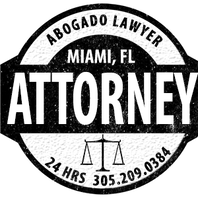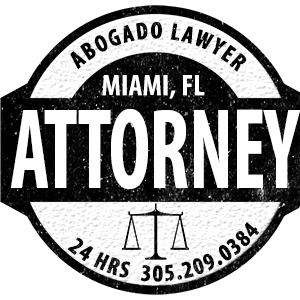Understanding the differences between drug trafficking and drug possession charges in Florida is essential to protecting your rights and securing the best possible outcome in your case. Based on Florida Statute §893.135, there are significant differences in the penalties and consequences for drug trafficking and drug possession offenses. If you or a loved one has been arrested for a drug-related offense, it is crucial to call Miami Criminal Defense Attorney Dennis Gonzalez Jr as soon as possible.Drug Trafficking vs. Drug Possession in Florida Under Florida Statute §893.135, drug trafficking involves the sale, purchase, manufacture, delivery, or possession of specific quantities of controlled substances. The penalties for drug trafficking offenses are severe and include mandatory minimum prison terms and substantial fines. The punishments depend on the type and quantity of the controlled substance involved. On the other hand, drug possession involves having a controlled substance without the intent to sell or distribute it. Possession charges can be classified as either actual possession (physically on the person) or constructive possession (in an area the person has control over). Penalties for drug possession are typically less severe than those for drug trafficking but can still include jail time, fines, probation, and a potential driver's license suspension. Why You Need Miami Criminal Defense Attorney Dennis Gonzalez Jr. Drug offenses can have life-altering consequences, and you need an experienced and dedicated attorney to represent you. Miami Criminal Defense Attorney Dennis Gonzalez Jr. has extensive real-life experience in applying defenses for drug trafficking and drug possession cases. He will work tirelessly to protect your rights and achieve the best possible outcome for your situation. Realistic Defenses for Drug Trafficking and Drug Possession There are several defenses that Miami Criminal Defense Attorney Dennis Gonzalez Jr. can apply to drug trafficking and drug possession cases, based on Florida law and the specific circumstances of your case:
The complexities of drug-related cases require the expertise of a knowledgeable and experienced attorney. Miami Criminal Defense Attorney Dennis Gonzalez Jr. will thoroughly investigate your case, identify any weaknesses in the prosecution's evidence, and develop a tailored defense strategy to secure the best possible outcome. Choose Miami Criminal Defense Attorney Dennis Gonzalez Jr. If you or a loved one is facing drug trafficking or drug possession charges, do not hesitate to contact Miami Criminal Defense Attorney Dennis Gonzalez Jr. for a comprehensive and vigorous defense. His dedication, expertise, and personalized approach will give you the confidence you need to navigate this challenging process. Call Dennis Gonzalez Jr. today and protect your rights and your future.
Introduction White collar crime, drug trafficking, and money laundering have long plagued societies around the world. With the emergence of cryptocurrencies such as Bitcoin, Ethereum, and Cardano ADA, these criminal activities are taking on a new shape. This article examines the use of traditional fiat currency versus cryptocurrencies in criminal activities, the traceability of both, and the potential impact of government regulation on legal, legitimate users of cryptocurrencies. The Use of Fiat Currency and Cryptocurrency in Criminal Activities Fiat currency, such as the US dollar, has long been the preferred medium of exchange for criminal activities. It is often difficult to trace due to its physical nature, and can easily be laundered through banks, casinos, and other institutions. However, the use of cryptocurrencies is becoming increasingly popular among criminals, particularly in the realm of white collar crime, drug trafficking, and money laundering. Cryptocurrencies offer a level of anonymity and decentralization not found in traditional fiat currencies. Transactions are conducted electronically through a blockchain, which allows for peer-to-peer exchanges without the need for a centralized authority such as a bank. This makes it more challenging for law enforcement to track and monitor illegal activities. Traceability and Government Oversight While cryptocurrencies provide a level of anonymity, they are not entirely untraceable. Transactions are recorded on a public ledger, allowing for the possibility of tracing transactions back to specific addresses. Additionally, cryptocurrency exchanges often require users to provide identification information, which can be obtained by law enforcement through subpoenas or search warrants. In contrast, fiat currency transactions can be more challenging to trace, particularly when conducted in cash. However, regulations such as the Bank Secrecy Act and anti-money laundering (AML) requirements mandate financial institutions to report suspicious activities and maintain records, which can aid in tracking and monitoring illicit transactions. The Impact of Government Regulation on Legitimate Crypto Users As cryptocurrencies become more mainstream, there is an ongoing debate about the need for increased government regulation to prevent criminal activities. Proponents of regulation argue that it would protect legitimate users and help maintain the integrity of the cryptocurrency ecosystem. For instance, increased oversight could reduce the prevalence of scams, hacks, and other fraudulent activities that plague the crypto world. However, opponents argue that excessive regulation could stifle innovation and impede the growth of the cryptocurrency market. Furthermore, they contend that legitimate users of cryptocurrencies like Cardano ADA and Ethereum, which have shown potential for revolutionizing industries such as finance and supply chain management, could suffer from increased compliance costs and reduced privacy. Conclusion The use of cryptocurrencies in white collar crime, drug trafficking, and money laundering presents a new challenge for law enforcement and regulators. While cryptocurrencies offer certain advantages over traditional fiat currency in terms of anonymity and decentralization, they are not completely immune to government oversight and traceability. The debate surrounding increased regulation of cryptocurrencies is complex, with potential benefits and drawbacks for legitimate users. As governments and regulatory bodies continue to grapple with this issue, the future of cryptocurrencies and their role in criminal activities remains uncertain. Related: Crypto Currency Attorney
|
Dennis Gonzalez Jr.
Miami Criminal Defense Attorney Archives
July 2023
Categories
All
|




 RSS Feed
RSS Feed